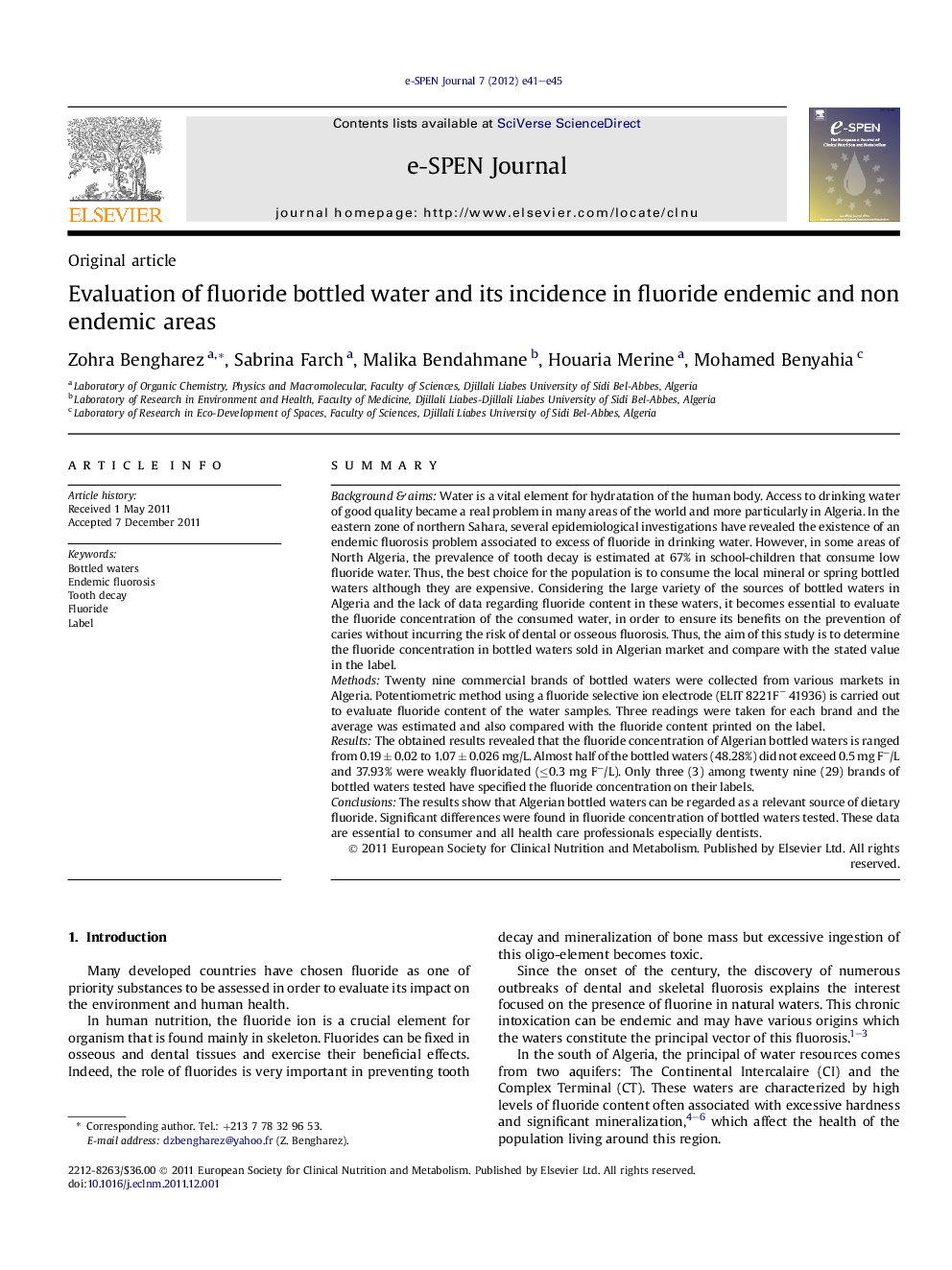| Article ID | Journal | Published Year | Pages | File Type |
|---|---|---|---|---|
| 2690284 | e-SPEN Journal | 2012 | 5 Pages |
SummaryBackground & aimsWater is a vital element for hydratation of the human body. Access to drinking water of good quality became a real problem in many areas of the world and more particularly in Algeria. In the eastern zone of northern Sahara, several epidemiological investigations have revealed the existence of an endemic fluorosis problem associated to excess of fluoride in drinking water. However, in some areas of North Algeria, the prevalence of tooth decay is estimated at 67% in school-children that consume low fluoride water. Thus, the best choice for the population is to consume the local mineral or spring bottled waters although they are expensive. Considering the large variety of the sources of bottled waters in Algeria and the lack of data regarding fluoride content in these waters, it becomes essential to evaluate the fluoride concentration of the consumed water, in order to ensure its benefits on the prevention of caries without incurring the risk of dental or osseous fluorosis. Thus, the aim of this study is to determine the fluoride concentration in bottled waters sold in Algerian market and compare with the stated value in the label.MethodsTwenty nine commercial brands of bottled waters were collected from various markets in Algeria. Potentiometric method using a fluoride selective ion electrode (ELIT 8221F− 41936) is carried out to evaluate fluoride content of the water samples. Three readings were taken for each brand and the average was estimated and also compared with the fluoride content printed on the label.ResultsThe obtained results revealed that the fluoride concentration of Algerian bottled waters is ranged from 0.19 ± 0.02 to 1.07 ± 0.026 mg/L. Almost half of the bottled waters (48.28%) did not exceed 0.5 mg F−/L and 37.93% were weakly fluoridated (≤0.3 mg F−/L). Only three (3) among twenty nine (29) brands of bottled waters tested have specified the fluoride concentration on their labels.ConclusionsThe results show that Algerian bottled waters can be regarded as a relevant source of dietary fluoride. Significant differences were found in fluoride concentration of bottled waters tested. These data are essential to consumer and all health care professionals especially dentists.
